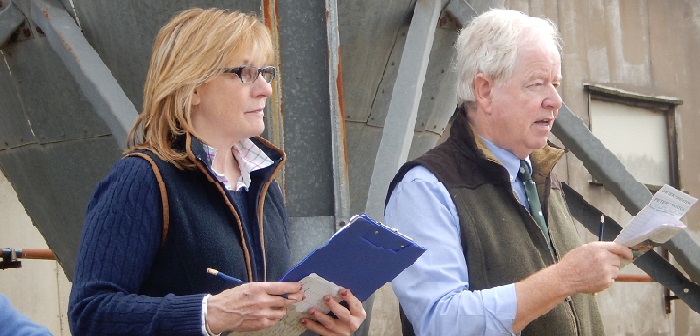Prices are continuing on their upward track reflecting ongoing shortages in global pigmeat supplies as well as increased demand from China, although much of the price rise seen in recent weeks is also due to currency fluctuations with the pre-Brexit euro worth around 77p and the post Brexit result Euro traded today worth 86.23p, which alone puts 12% on pigmeat values. But it’s interesting to note that despite the demand from China, the influential German producer price has stood on for the past six weeks at 1.66 euros.
The SPP is continuing on its upward track, putting on a remarkable 2.59p and now stands at 133.98p, but most weekly contribution prices were anywhere between stand on and +3p/kg, which will also help to feed into next week’s SPP and so on.
Very little spot bacon was traded, with most pigs being retained on contract but, for producers with a spare load, prices in the 145p to 150p/kg range were available, with more for lighter weights.
Sterling has continued to weaken against the euro, which traded at 86.36p on Friday compared with 84.82p a week earlier, and encouraged cull sow export buyers to add another penny to their prices with the result that most were traded within a fairly narrow 81p to 84p/kg band.
Weaner prices are continuing to move ahead, reflecting supply shortages in this sector, which could also add more upward pressure to bacon pig prices in the autumn.
The latest AHDB 30kg ex-farm average is quoted at £44.82/head and 7kg piglets at £32.68/head, but as in the finished pig sector, spot prices are significantly higher than contract. For those producers who’re inclined to jump ship, just remember that there are 52 weeks in a year and only as recently as three months ago weaner sellers with contracts were streets ahead of their spot counterparts which were, in the words of Dell Boy, “being given away”.
One of the downsides of a weaker pound has been the effect this has had on feed prices, which comes at a cost as far as the 12% reduction in the value of the pound with new crop feed wheat being traded in the £118/t range ex-farm and futures prices also reflecting slightly bullish trends with November feed wheat quoted on the LIFFE market at £131.50/t and March 2017 at £136/t.
And finally, it’s good news to hear that the French (who’re always there when they need us) are going to require food companies to introduce mandatory country of origin labelling for milk and meat in processed foods. Good news too that Scotland may be encouraged to follow suit, along with Italy, Lithuania and Portugal.
This supports food chain evidence that consumers want country of origin labelling rather than the confusing system we have at present where “Yorkshire ham” can be imported, providing it’s processed (but not necessarliy grown) in Yorkshire.




